COVID’s impact on civic space: Hilary Pennington with Poonam Joshi

Transcript
[Poonam Joshi, a South Asian woman in her 50s with short black hair, wearing a dark blue button-down shirt, sits for a video interview with Hilary Pennington, a white woman with blonde hair, wearing a geometric-patterned shirt and acrylic earrings, sitting in an orange chair.]
POONAM JOSHI: What is the civic space that we want? So we know that digital civic space is going to be fundamentally a part of the future of civic space and democracy. So what are the things that we could be funding right now? What are the things that civil society may not even be thinking about that we need for the future?
[on-screen graphic: Social Justice Leaders on What Matters, Hilary Pennington with Poonam Joshi]
[on-screen text: Hilary Pennington, Executive Vice President of Programs, Ford Foundation]
HILARY PENNINGTON: Poonam Joshi has over 20 years of experience working on a range of very complex human rights issues. She currently serves as the director of the Funders Initiative for Civil Society, and you will hear in our conversation how this diverse range of experiences come together to make her one of the most astute analysts of the threats to civil society that I know. So Poonam so, uh, grateful to you for making the time for this conversation. Thank you.
[on-screen text: Poonam Joshi, Director, Funders’ Initiative for Civil Society]
POONAM: Oh, thank you, Hilary. It’s a real privilege, um, to be invited to participate in this series. I know Ford supports incredible social justice leaders around the world. At FICS, we don’t do the work, but we keep the space open for those justice leaders. And I’m really pleased to be part of the conversation today.
HILARY: Well, thank you. And that’s, that’s actually such a great lead-in. What is the Funders Initiative for Civil Society—FICS? Could you explain, um, how this initiative came to be and just how you operate, how you do your work?
POONAM: Absolutely. So civic space is that essential place for democracy, where people come together to share ideas, to organize, to hold power to account. And what we’ve seen over the last decade is that space has come under attack at a scale that’s unprecedented in modern history. And FICS was originally set up in 2016 to help funders think strategically about the phenomena of closing civic space. And I think, you know, many of us felt we had missed the warning signs around populism, around polarization. So, in 2019 we led a review of the future of civic space—what happens when democratic blocks backsliding intersects with culture wars, intersects with economic inequality, intersects with climate and technological disruption. And what we found was a world that was rapidly changing and incredibly exciting opportunities to, to, to shape that. But what we were seeing, that progressive civic actors and movements had the ideas, had the solutions, but they were being held back. They were being targeted, and we wanted to understand what lay behind that.
HILARY: You know, you are describing a very critical function, I think, for all of us, for, for civil society actors and for foundations, which is to have some places we come together to really, um, get the perspective to understand like, what do they—what’s actually happening, and what does it actually mean? And I would love to hear, um, the results of that analysis, because I think you have some profound insights about how negative narratives about civil society spread.
POONAM: FICS has a dual function—to, to look around the corner for the trends and drivers but also to understand not just the threats but the opportunities for expanding civic space—creating the vehicles through which funders can come together and go, “Okay, we’ve got the analysis, now what do we do? And how do we do it at scale? Um, how do we support innovation? How do we take risks together?” So, so FICS’s current model has this hybrid function of a think tank to do that horizon-scanning piece, but then also the incubation function, um, recognizing that even when funders have this analysis, they’re, they’re firefighting on so many different fronts. How do you create that space to fund innovation? And that reality is the kind of scale that you need to get behind the game-changing ideas that are going to shift the drivers can’t be delivered by any one funder alone.
HILARY: And so let’s talk a little bit about the drivers and then I do think it would be really, really helpful to hear you talk about where you see the opportunity space, because that’s one of the things I love about the work of FICS. It’s not just focused on the problems, but you actually are, as you said, beginning to experiment with, “Well, then what do we do?”
POONAM: We interviewed over 150 activists and funders around the world, working on the issues that we thought were going to be most contested over the next decade—corporate power; environment; future of AI, tech, and media; intersectional inequality. And I think we were really surprised to find that there were three dominant drivers that touched each of those sectors and movements, albeit in different ways.
So, the one that we’d expected is that nearly all of our interviewees talked about the threats to their work from the far right, religious right, and illiberal populism. Um, and that took the form of attacks on rule of law, really kind of weakening checks and balances. It took the form of dismantling human rights protections. But it also took the form of these governments whose, whose shared goal was around gaining and holding onto power—at any cost, in some cases. It took the form of attacks on democratic pluralism and trying to push other ideas out of the marketplace.
The second driver was around concentration and abuse of economic power. What you’d seen over sort of recent decades was the sort of shift in the social contract, where that balance of power between state and private sector had expanded at the expense of civil society. And you saw the private sector having kind of unfettered access to government to advocate for their interests. You saw, uh, erosion of democracy because citizens did not have the opportunity to have their voices heard in the same way that certain private interests did.
And then the third driver was around the use and abuse of counterterrorism and security laws and discourse. Governments were using counterterrorism legislation to target civil society. In a context of climate crisis, in a context of future crises and emergencies, this would be the driver that would become the dominant driver of closing civic space. And I think with the pandemic, sadly, we saw that was the case.
HILARY: You know, what do you see emerging as the political legacy of, of the COVID pandemic in relation to civic space? I think we all hoped, in the beginning, it would bring us together, right?
POONAM: It does have a dual legacy. I mean, I—I think in the early months of the pandemic, we learned a lot about ourselves and society. And I think this, this wonderful realization that in crisis people can be the very best of themselves. And there was generosity, there was solidarity, there were these mutual aid organizations that flourished around the world, and that was a real sort of source for hope. But, the other side of the pandemic, in the context of that flux and shock, we also saw that people and actors, governments, companies that were already very powerful saw the pandemic as an opportunity to consolidate that power. And I think what we saw, that trends that were already afoot, accelerated during that period.
I think for us at FICS, where we’re trying to think about the game changers, if you look at technology and civic space, there are the wicked problems—surveillance, censorship, um, internet shutdowns, um—and there’s, there’s a critical body of work to do around holding the corporates to account that profit from that and preventing the export of those technologies to the governments that are going to use it to restrict civil society. But there’s kind of bigger-picture work to think about: What is the civic space that we want? So we know that digital civic space is going to be fundamentally a part of the future of civic space and democracy. So what are the things that we could be funding right now? What are the things that civil society may not even be thinking about that we need for the future? How do we reform the law and get the definitions and the checks and balances that we need? And, simultaneously, what are the kind of innovative ways of making sure that, that the big tech, the big AI companies, um, have to think very carefully about the fact that they are stewarding a public good that’s going to be necessary for everyone.
HILARY: I love that emphasis on innovation. I really do because—and I think that is where civil society excels. And I think, you know, too often funders, uh—you know, the dialogue can get stuck in the problems. And the function that you are playing—and both philanthropy can play and also civil society—of helping people create things they cannot yet imagine is so important.
You know, so I want to take us, uh, in our last few minutes, just into a bit of a different direction, which is more personal to you, um, uh, you know, kind of on two fronts. One is you have such a passion for this set of work—for human rights, for civic space, civil society. I’d love to hear a little bit more about how you, how you came to this work and then, you know, also just what keeps you going.
POONAM: So my parents were migrants from India in the 1960s, and I was brought up in a place called Coventry. It’s an industrial city in the center of England. And at the time I was growing up, in the 70s and 80s, it had been hit very hard by recession. And it was one of the centers of the national front, which was the far right’s racist movement in the UK at the time. And I saw my parents in particular, you know, face assault, face violence. We had bricks through our window. You know, I saw firsthand what bigotry does to people. Um, but then the other side of the story was a really remarkable one, which is both my parents were teachers who had this incredible sense of civic duty. And I was taught from a very early age that it’s your duty to use whatever privilege you have to give back to the community and give back to society. And so in the days—in the daytime, they were teachers, but in the evening and the weekends, our house was effectively a community clinic, where anyone who had a problem around housing, immigration, education, um, came for help because my parents were in that unique position of having sufficient English to be able to help. And I, my job was making the cups of tea, bringing, you know, boxes of tissues, but also, over time, writing the letters or correcting the letters that were going off to these different, different authorities. But, you know, I look back and I can’t think of any other trajectory my life could have taken.
Um, and in terms of what keeps me going, um, it’s, it’s the courage of, of the grantees that we work with around the world. Um, but often it’s not, it’s not the stories about individuals; it’s the stories when community come together. It takes me back to that experience of growing up. You know, you can—absolutely, you can live in context of sort of fear and hostility, but when you come together, you have power.
HILARY: Well, I just want to thank you so much for making the time. I know how much is on your plate, how busy you are, but this has been just a really inspiring conversation. Thank you.
[on-screen text: What’s your take? Join the conversation]
[on-screen graphic: Ford Foundation logo]
Accessibility Statement
- All videos produced by the Ford Foundation since 2020 include captions and downloadable transcripts. For videos where visuals require additional understanding, we offer audio-described versions.
- We are continuing to make videos produced prior to 2020 accessible.
- Videos from third-party sources (those not produced by the Ford Foundation) may not have captions, accessible transcripts, or audio descriptions.
- To improve accessibility beyond our site, we’ve created a free video accessibility WordPress plug-in.
In this episode of #OnWhatMatters, Poonam Joshi, director of the Funders’ Initiative for Civil Society, speaks with Ford Foundation executive vice president of program Hilary Pennington about why protecting civic space is more important now than ever.
“We know that digital civic space is going to be fundamentally a part of the future of civic space and democracy. So what are the things that we could be funding right now? What are the things that civil society may not even be thinking about that we need for the future?” – Poonam Joshi
The Funders’ Initiative for Civil Society brings funders and civil society representatives together to work and collaborate on a wide range of issues from climate justice and racial justice to democracy, security, and technology.
Other videos in this series
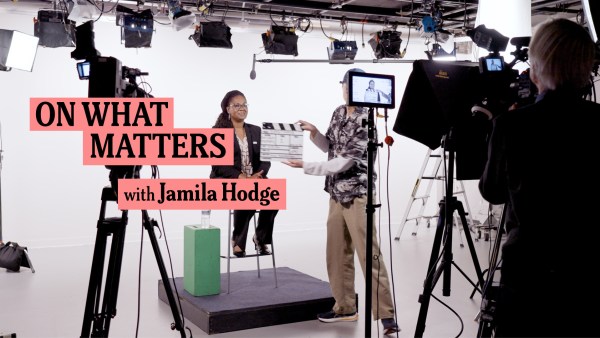
Advancing Community-Based Violence Intervention With Jamila Hodge and Sarita Gupta
Jamila Hodge of Equal Justice USA and Sarita Gupta of the Ford Foundation talk about community-based violence intervention and the importance of promoting a trauma-informed public health response to violence. Jamila explains how, if we want to address institutional racism, we must address the root causes of violence and center those most impacted.
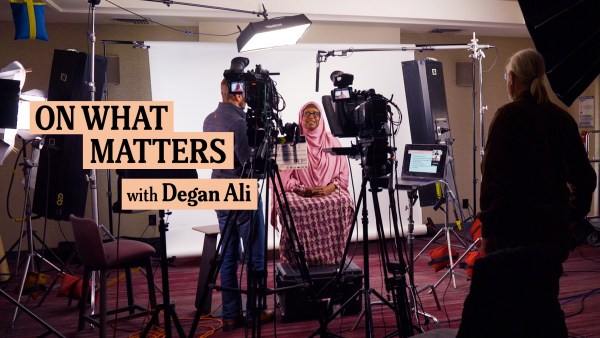
Decolonizing Humanitarian Aid With Degan Ali and Martín Abregú
Degan Ali and Martín Abregú talk about shifting to locally led development and decolonizing aid. Degan shares why we must rethink current structures of providing aid and have local civic society organizations play a stronger and more strategic role in global policy debates.
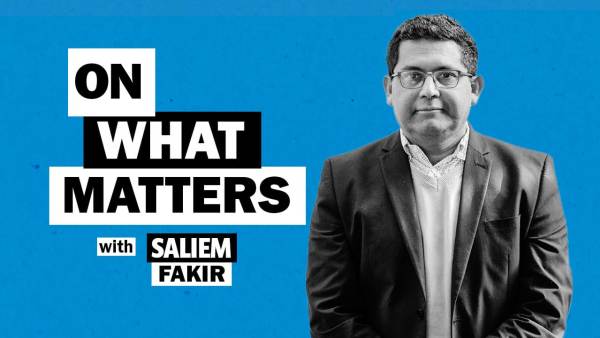
Working Towards a Truly Just Energy Transition with Hilary Pennington and Saliem Fakir
Saliem Fakir, the founder and executive director of the African Climate Foundation, the first grantmaking foundation in Africa focused on furthering solutions for sustainable climate development, joins Hilary Pennington to discuss the urgent need to address climate change and South Africa’s promising Just Energy Transition Partnership.
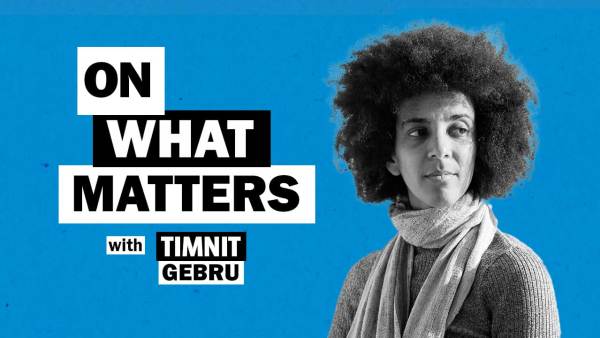
Making AI systems more just with Hilary Pennington and Dr. Timnit Gebru
Dr. Timnit Gebru, founder and executive director of the Distributed Artificial Intelligence Research Institute (DAIR), joins Hilary Pennington to discuss how an inclusive and collaborative approach to creating AI systems can address the uneven benefits and harmful impacts of technology on society.
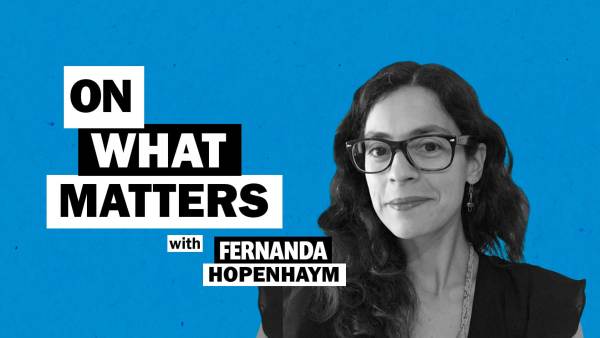
Holding corporations accountable with Hilary Pennington and Fernanda Hopenhaym
Fernanda Hopenhaym is the co-executive director of the Project on Organizing, Development, Education, and Research (PODER), a nonprofit in Latin America that pushes for corporate accountability for human rights and environmental abuses. Fernanda and Hilary discuss how to keep businesses ethical and transparent by using feminist and human rights organizing strategies.
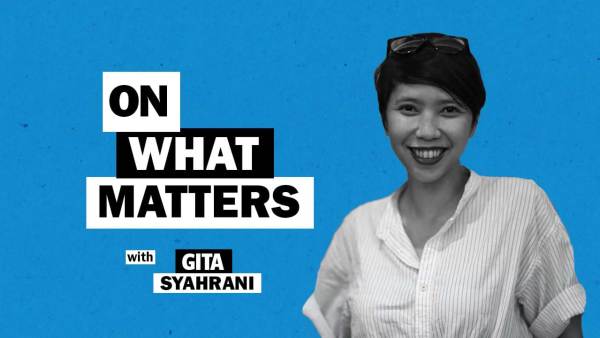
Saving forests while eradicating poverty with Hilary Pennington and Gita Syahrani
Hilary Pennington talks with Gita Syahrani about how engaging Indigenous and local communities in sustainability efforts can lead to greater economic mobility for them. Her work shows how civic engagement at the district level can have global impact.
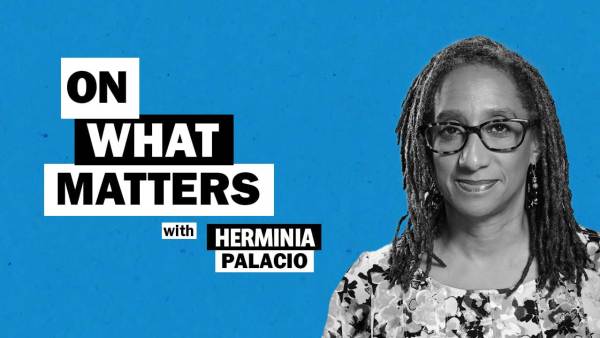
The future of reproductive justice with Hilary Pennington and Dr. Herminia Palacio
Hilary Pennington and Dr. Herminia Palacio discuss this moment in the reproductive justice movement, how different communities are impacted, and what the United States can learn from countries that have won gender and reproductive health victories.
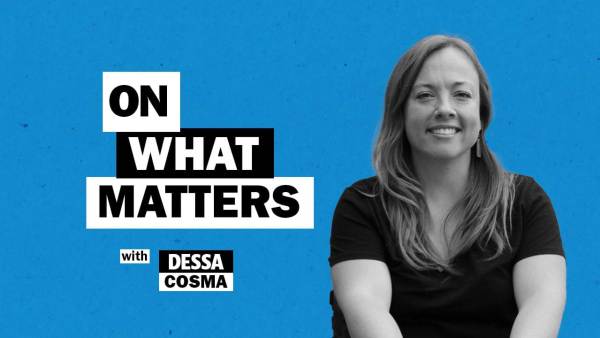
Reimagining how we think about disability with Hilary Pennington and Dessa Cosma
Hilary Pennington talks to Dessa Cosma about disability justice and inclusion. They discuss the importance of using intersectional approaches to activism and how to restructure the economy to be more just for disabled people.
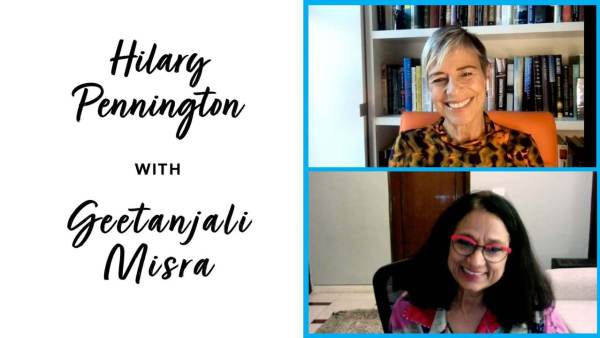
The future of feminism: Hilary Pennington with Geetanjali Misra
Geetanjali Misra has bore witness to the evolution of feminism both on the ground in the U.S. and India and in her work as an activist. Seeing patterns change and movements shift, she speaks about the importance of intersectionality in building a more inclusive feminist future.
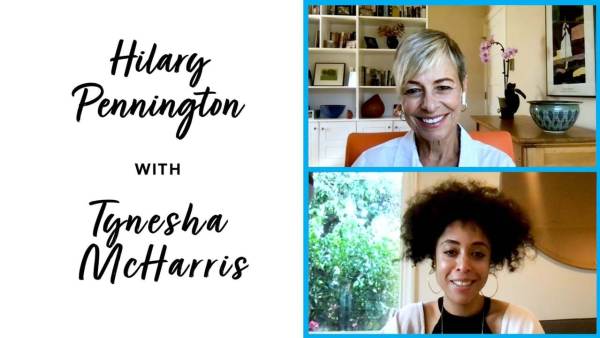
Funding Black feminism: Hilary Pennington with Tynesha McHarris
Black feminist movements are advancing social justice globally. Tynesha Harris, one of the founders of the Black Feminist Fund, aims to channel more support to movement leaders and create a model of true solidarity. Racial, gender, and class injustice need an intersectional approach that acknowledges the inherent value of Black women.

Philanthropy and environmental justice: Hilary Pennington with Laura García
When it comes to climate change, time is running out. But communities all over the world are working on solutions, and philanthropy needs to center their ideas and perspectives to win this fight. Laura Garcia, CEO of GlobalGreen Grants Fund, shares how funding grassroots movements can address challenges at the intersection of social and environmental justice.
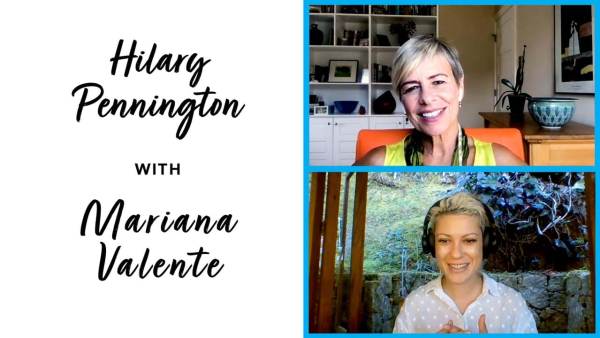
Technology and gender: Hilary Pennington with Mariana Valente
The internet is a force for good, but it must be guided by fundamental human and privacy rights and offer social protection, said InternetLab director Mariana Valente. In this way, technology can advance equality and, with the right policies in place, be used as a tool for advocates to organize.
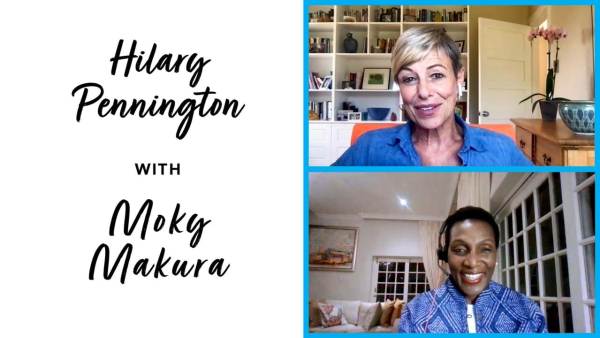
The power of storytelling: Hilary Pennington with Moky Makura
For too long, Africa has been defined in the media by stereotypes and oversimplified narratives. With Ford’s support, Africa No Filter is disrupting these narratives by empowering storytellers helping to create a nuanced, balanced view of the continent and an equitable, inclusive way of how to partner with it.
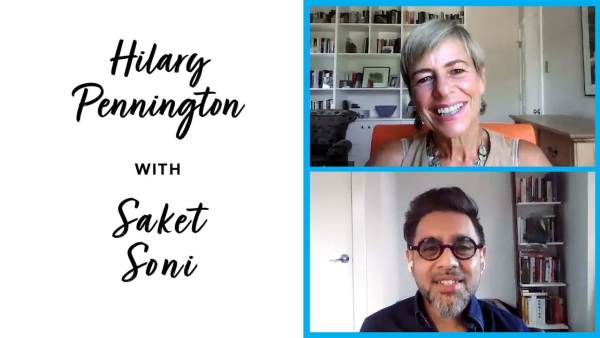
What essential workers need right now: Hilary Pennington with Saket Soni
Disasters present the opportunity to bring us together and give us the chance to reevaluate our priorities and ask what’s really important. Labor organizer Saket Soni sees COVID-19 as a prologue to other threats, like climate change. He says disaster responses need to focus on strengthening essential workers.
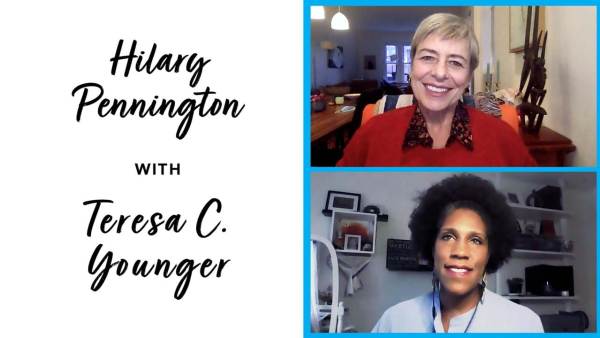
Philanthropy and Black women: Hilary Pennington with Teresa C. Younger
Social justice organizations led by women of color often receive less funding. Teresa C. Younger, CEO of the Ms. Foundation, explains why philanthropy needs to center women of color to address systemic racism and uplift women and girls of color for a more just future.
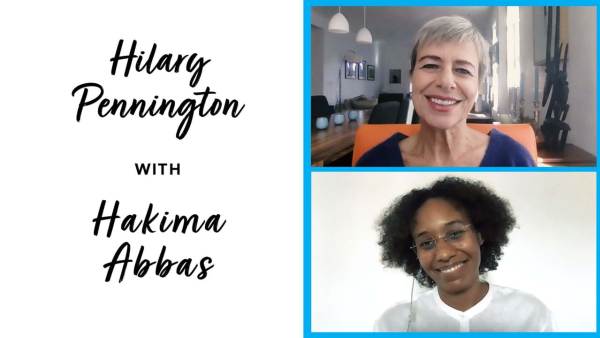
How young feminists are organizing: Hilary Pennington with Hakima Abbas
COVID-19 has impacted the way we work, but it also exacerbated gender inequality in the workplace. Hakima Abbas, of the Association for Women’s Rights in Development, believes we can prevent any further damage by including feminist leaders across the board in devising solutions.
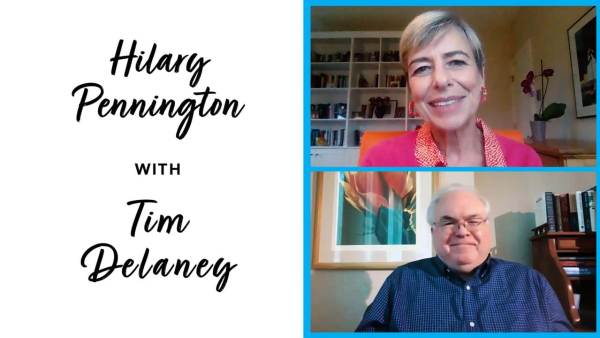
How nonprofits make an impact: Hilary Pennington with Tim Delaney
Over one million nonprofits exist in the United States, but Tim Delaney, the CEO of the National Council of Nonprofits, has an idea to make them even more impactful. To him, bringing social justice groups together can transform philanthropy for the benefit of all.
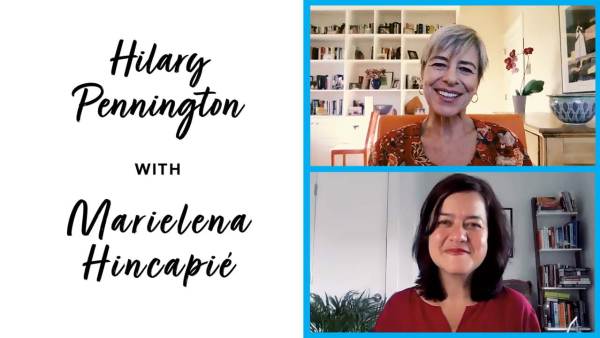
Immigrants are essential: Hilary Pennington with Marielena Hincapié
Immigration has been used as a weapon to divide the United States. The National Immigration Law Center aims to help the country understand that immigrants are not only important members of our communities and essential workers, but they are also valuable political constituencies needed to make American democracy work.
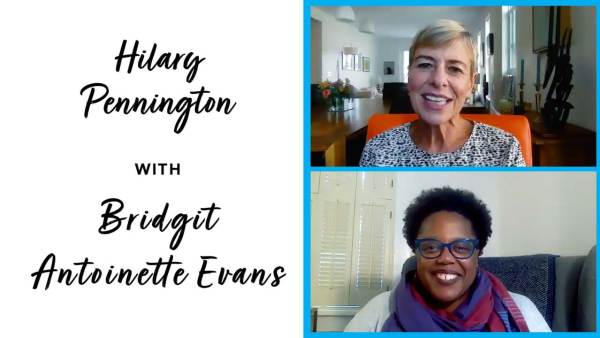
Social justice and pop culture: Hilary Pennington with Bridgit Antoinette Evans
Pop culture plays an important role in advancing social justice. Bridgit Evans of Pop Culture Collaborative produces cultural strategies that build on points of connection to ensure policy changes are not just symbolic. By finding commonalities through culture, she believes we can create a world where everyone feels they belong.
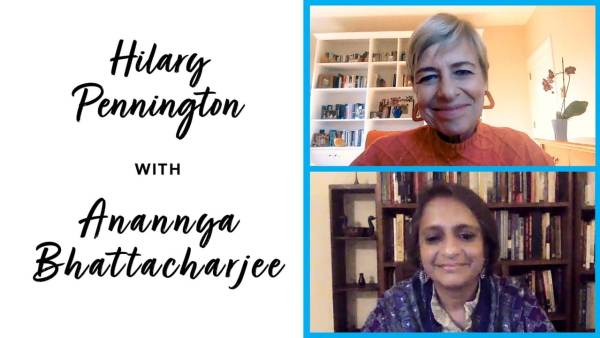
Global work needs to be local: Hilary Pennington with Anannya Bhattacharjee
While the labor movement has worked to improve the lives of garment factory workers globally, activist Anannya Bhattacharjee advocates that solutions need to start locally and come from the ground up to have a significant impact on workers’ lives.
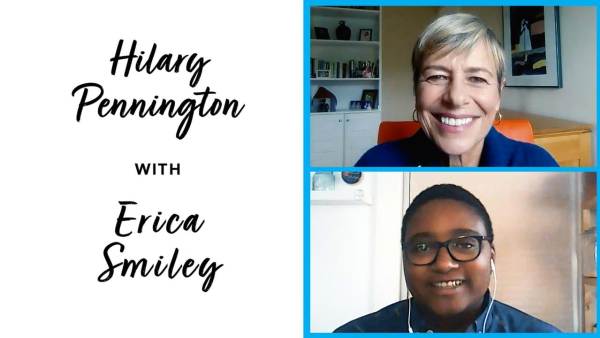
Essential workers are the economy: Hilary Pennington with Erica Smiley
The COVID-19 pandemic has dramatically changed the way we as a world work. As we face this inflection point, Erica Smiley, executive director of Jobs With Justice, believes people—especially essential workers—need to have the right to come together collectively to organize and negotiate their conditions to build a global economy that works for all.

The urgency of this social moment: Hilary Pennington with Eric Ward
We need to dismantle racism to make inclusive democracy truly possible. Eric Ward of Western States Center believes smaller movements can help support bigger waves of change. From creating cohorts of emerging leaders to encouraging small group interactions can help protect democracy and put an end to white supremacy.